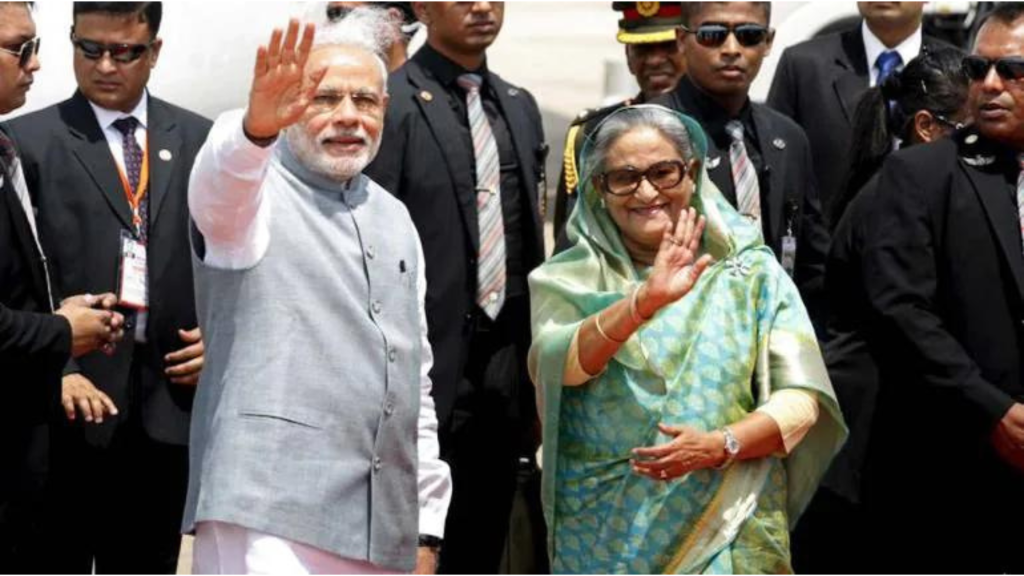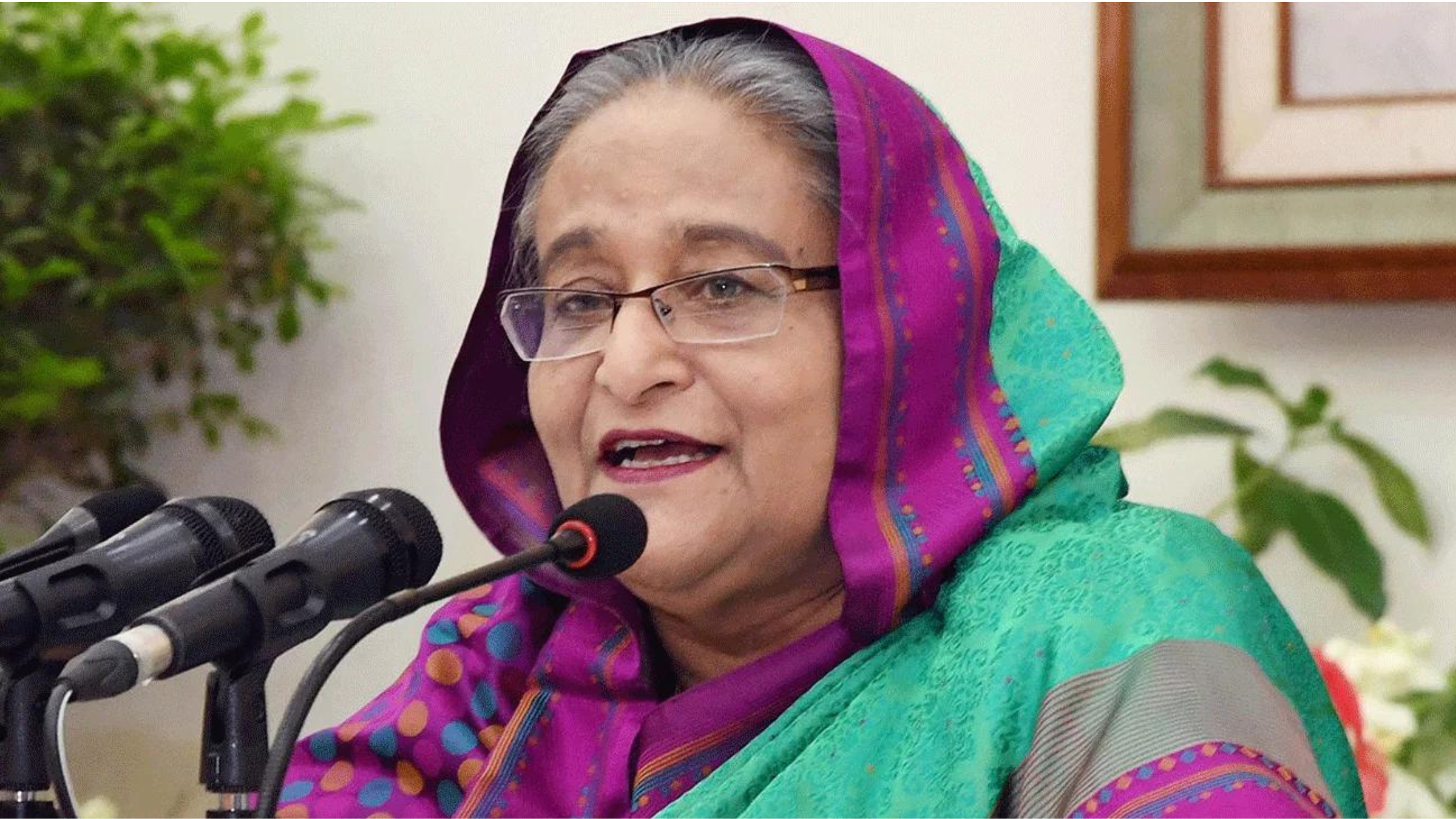Bangladesh National Elections 2024: Decoding Sheikh Hasina’s Leadership and Other Approach Towards India
Explore the intricacies of Bangladesh’s national elections in 2024 and the significance of Sheikh Hasina’s leadership for India. Delve into the political landscape, parties’ stances, and why this matters for India’s strategic interests.
Bangladesh National Elections 2024: Sheikh Hasina, Other Political Contenders’ Approach Towards India — Why it Matters?
As the world closely watches the political landscape unfold in Bangladesh during the national elections of 2024, the implications for India become increasingly significant. At the forefront is the leadership of Sheikh Hasina, the current Prime Minister of Bangladesh, seeking an unprecedented fourth term in the upcoming polls scheduled for Sunday, January 7. The intricate dynamics of India’s relationship with Bangladesh, particularly under Sheikh Hasina’s leadership, have profound implications for regional stability, security, trade, and strategic partnerships.
India-Bangladesh Relations: A Strategic Alliance
India and Bangladesh share a 4,096-km long border, fostering an excellent state of bilateral relations based on deep historical and fraternal ties, as well as shared values of democracy and pluralism. The ties were further solidified during Sheikh Hasina’s state visit to India in 2022, where both nations reaffirmed their commitment to mutual cooperation.
Why Bangladesh Election is Important for India?
The proximity of India and Bangladesh, with the former sharing borders with West Bengal, Assam, Meghalaya, Tripura, and Mizoram, makes the political developments in Bangladesh of paramount importance to India. Several key factors underscore the significance of the Bangladesh elections for India
Cross-Border Terrorism: Under Sheikh Hasina’s leadership, Bangladesh has actively collaborated with India in intelligence sharing and security matters. Hasina’s zero-tolerance policy on insurgents and terrorists has significantly contributed to easing India’s security burden. The strong cooperation is in stark contrast to the challenges faced during the tenure of the previous Bangladesh government, led by Khaleda Zia.
Illegal Migration: The porous Indo-Bangladesh border has been a challenge for both countries, with illegal migration being a significant concern. The implementation of the Citizenship (Amendment) Act (CAA) by India has triggered discussions, with Sheikh Hasina expressing concerns about the need for such legislation. The issue of illegal immigrants remains a crucial aspect of bilateral discussions.
Trade and Economic Ties: Bangladesh stands as India’s largest trade partner in South Asia, with bilateral trade witnessing substantial growth despite disruptions caused by the COVID-19 pandemic. In November 2022, the Ministry of External Affairs highlighted the unprecedented growth in bilateral trade, emphasizing the strategic economic partnership between the two nations.
Regional Ties: The geographical locations of India and Bangladesh complement each other, providing opportunities for enhanced connectivity and economic development. Joint development projects, launched by Prime Minister Narendra Modi and Sheikh Hasina in 2023, aim to bolster trade and improve connectivity with India’s Northeastern states.
Political Parties and Their Approach Towards India:
While Sheikh Hasina’s government has been pivotal in fostering strong ties with India, it’s essential to examine the approach of other political parties contesting the Bangladesh elections
Bangladesh Awami League (BAL): Led by Sheikh Hasina, the BAL has maintained a friendly relationship with India. The party’s zero-tolerance policy on terrorism and commitment to not let Bangladeshi land be used for hostile forces toward India and Myanmar have contributed to stability in the region.
Bangladesh Nationalist Party (BNP): As the main opposition party, BNP, led by Khaleda Zia, has historical ties with India but has been accused of subverting India’s interests. The party’s decision to boycott the January 7 elections raises questions about the fairness and credibility of the polls.
Jatiya Party (JaPa): Jatiya Party, seen favourably by India, recently engaged in discussions in New Delhi, indicating a broader diplomatic engagement with Bangladesh’s political parties. The party’s emphasis on fair elections aligns with India’s interests.

The Road Ahead: Can Sheikh Hasina Secure a 4th Term?
With the BNP boycotting the elections, the path seems relatively smoother for Sheikh Hasina’s Awami League. However, the Hindustan Times suggests that the Awami League might not secure as many seats as in past elections due to an anti-incumbency wave, compounded by recent economic challenges. The party may need to rely on independent candidates for a successful electoral outcome.
In conclusion, the Bangladesh national elections of 2024 hold immense significance for India, considering the shared history, geographical proximity, and strategic partnerships. The outcome will shape the trajectory of India-Bangladesh relations, influencing regional stability, security, and economic cooperation in the years to come. As the results unfold, the world will be keenly observing the impact on this crucial diplomatic relationship.
Also Read: Lakshadweep Retains Google’s Top Spot Following Stunning PM Modi’s Visit



